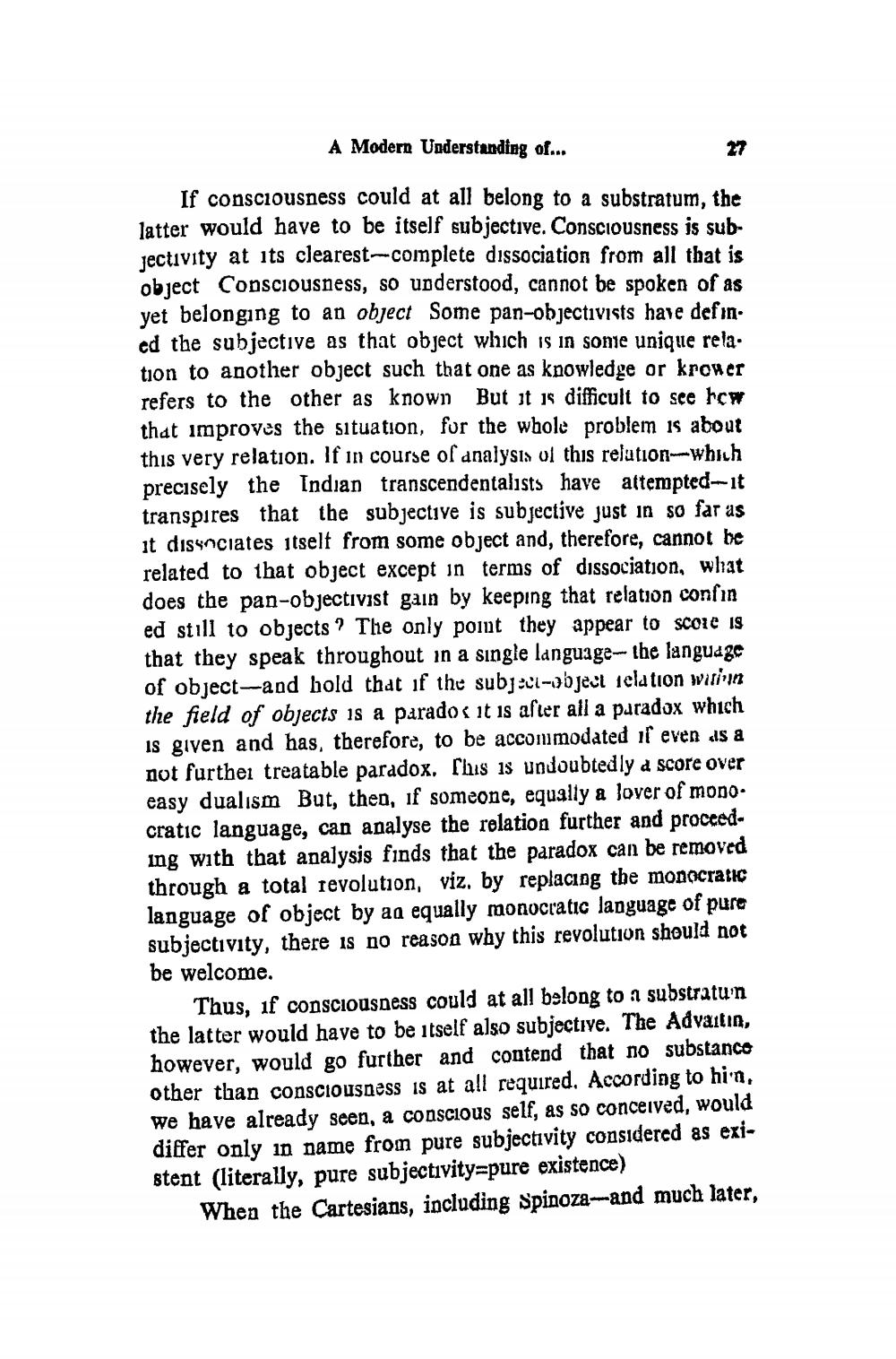________________
A Modern Understanding of...
If consciousness could at all belong to a substratum, the latter would have to be itself subjective. Consciousness is subjectivity at its clearest-complete dissociation from all that is object Consciousness, so understood, cannot be spoken of as yet belonging to an object Some pan-objectivists have defin ed the subjective as that object which is in some unique relation to another object such that one as knowledge or krower refers to the other as known But it is difficult to see how that improves the situation, for the whole problem is about this very relation. If in course of analysis of this relation-which precisely the Indian transcendentalists have attempted-it transpires that the subjective is subjective just in so far as it dissociates itself from some object and, therefore, cannot be related to that object except in terms of dissociation, what does the pan-objectivist gain by keeping that relation confin ed still to objects? The only point they appear to score is that they speak throughout in a single language- the language of object and hold that if the subject-object relation within the field of objects is a paradox it is after all a paradox which is given and has, therefore, to be accommodated if even as a not further treatable paradox. This is undoubtedly a score over easy dualism But, then, if someone, equally a lover of monocratic language, can analyse the relation further and proceeding with that analysis finds that the paradox can be removed through a total revolution, viz. by replacing the monocratic language of object by an equally monocratic language of pure subjectivity, there is no reason why this revolution should not be welcome.
27
Thus, if consciousness could at all belong to a substratu'n the latter would have to be itself also subjective. The Advaitin, however, would go further and contend that no substance other than consciousness is at all required. According to hi'n, we have already seen, a conscious self, as so conceived, would differ only in name from pure subjectivity considered as existent (literally, pure subjectivity=pure existence)
When the Cartesians, including Spinoza-and much later,




